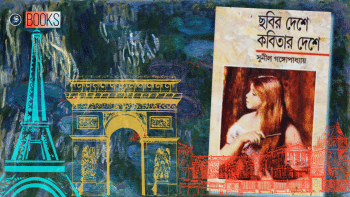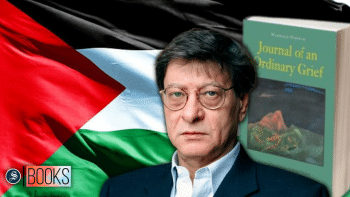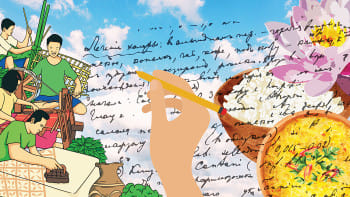nonfiction review
BOOK REVIEW: NONFICTION / Navigating the labyrinth of Bangladesh’s secular identity
The debate about the constitutional position of secularism in Bangladesh with Islam as the state religion raises one burning question, “Is the country undergoing an identity crisis?”
Book review: Nonfiction / Revisiting ‘Chobir Deshe, Kobitar Deshe’
The book captures all the enjoyable experiences of travelling, and the food they ate, and provides descriptions of France's seas.
Book Review: Nonfiction / ‘Shohoj Kothai Orthoniti’ A localised flavour of economics
Flipping the pages of a textbook often makes me feel like I’m trapped in the US. We studied economics from an American lens, using American textbooks,
BOOK REVIEW: NONFICTION / ‘History and Heritage’: Reading Bengal in a series
Even at this moment when Google is under threat of being taken over by Artificial Intelligence and you may search for anything online,
BOOK REVIEW: NONFICTION / Memoirs of our unsung heroes
Massacre, murder, torture, violence, bayonet, bloodshed, grenade, displacement, death—these words bring to mind a war scenario.
Essay / War still rages on
We might never know how it feels when your whole existence is denied or the loss of homeland, but we can get a little glimpse of their suffering.
Book Review: Nonfiction / Eyeball to eyeball at Lords: A Bangladeshi occasion in a very English setting
35000 spectators turned out amid the colourful shamianas and flags to watch the one (and only) unofficial Test in Dhaka in January, 1977.
OPINION / What you call your own
As an Anglophone writer in Bangladesh, I’ve frequently faced the rather inane question of why I write in English.
BOOK REVIEW: NONFICTION / A modern love story in translation
I became an ardent admirer of Amrita Pritam, the maverick Punjabi author, an outspoken critic of the Indian patriarchy and discriminating social practices, three decades back in New York when I was putting together an anthology of world feminist poems in Bangla translation.
Navigating the labyrinth of Bangladesh’s secular identity
The debate about the constitutional position of secularism in Bangladesh with Islam as the state religion raises one burning question, “Is the country undergoing an identity crisis?”
Revisiting ‘Chobir Deshe, Kobitar Deshe’
The book captures all the enjoyable experiences of travelling, and the food they ate, and provides descriptions of France's seas.
‘Shohoj Kothai Orthoniti’ A localised flavour of economics
Flipping the pages of a textbook often makes me feel like I’m trapped in the US. We studied economics from an American lens, using American textbooks,
‘History and Heritage’: Reading Bengal in a series
Even at this moment when Google is under threat of being taken over by Artificial Intelligence and you may search for anything online,
Memoirs of our unsung heroes
Massacre, murder, torture, violence, bayonet, bloodshed, grenade, displacement, death—these words bring to mind a war scenario.
War still rages on
We might never know how it feels when your whole existence is denied or the loss of homeland, but we can get a little glimpse of their suffering.
Eyeball to eyeball at Lords: A Bangladeshi occasion in a very English setting
35000 spectators turned out amid the colourful shamianas and flags to watch the one (and only) unofficial Test in Dhaka in January, 1977.
What you call your own
As an Anglophone writer in Bangladesh, I’ve frequently faced the rather inane question of why I write in English.
A modern love story in translation
I became an ardent admirer of Amrita Pritam, the maverick Punjabi author, an outspoken critic of the Indian patriarchy and discriminating social practices, three decades back in New York when I was putting together an anthology of world feminist poems in Bangla translation.
The records of resilience
Much of the reminiscences in The Murti Boys encompass the grittiness of staving off the Pakistanis with little weaponry and a great deal of quick thinking.











